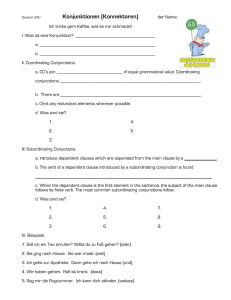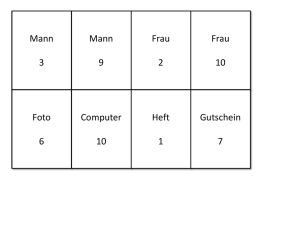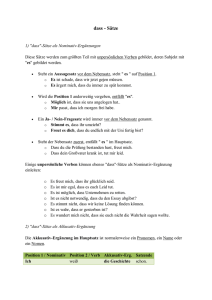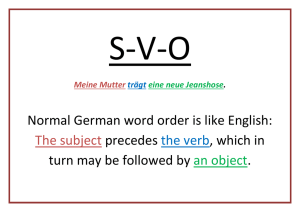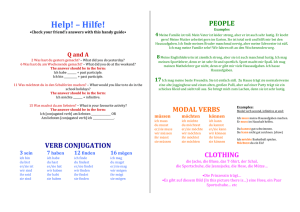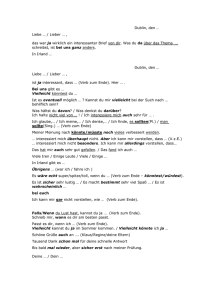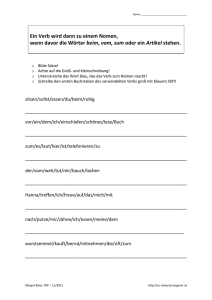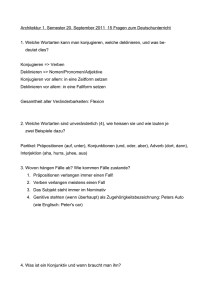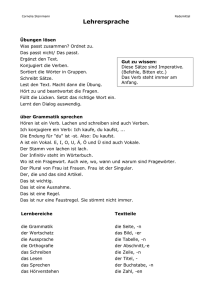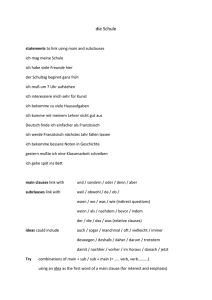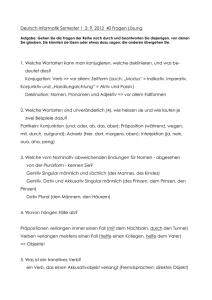Dependent clauses are headed by subordinating conjunctions. Here
Werbung
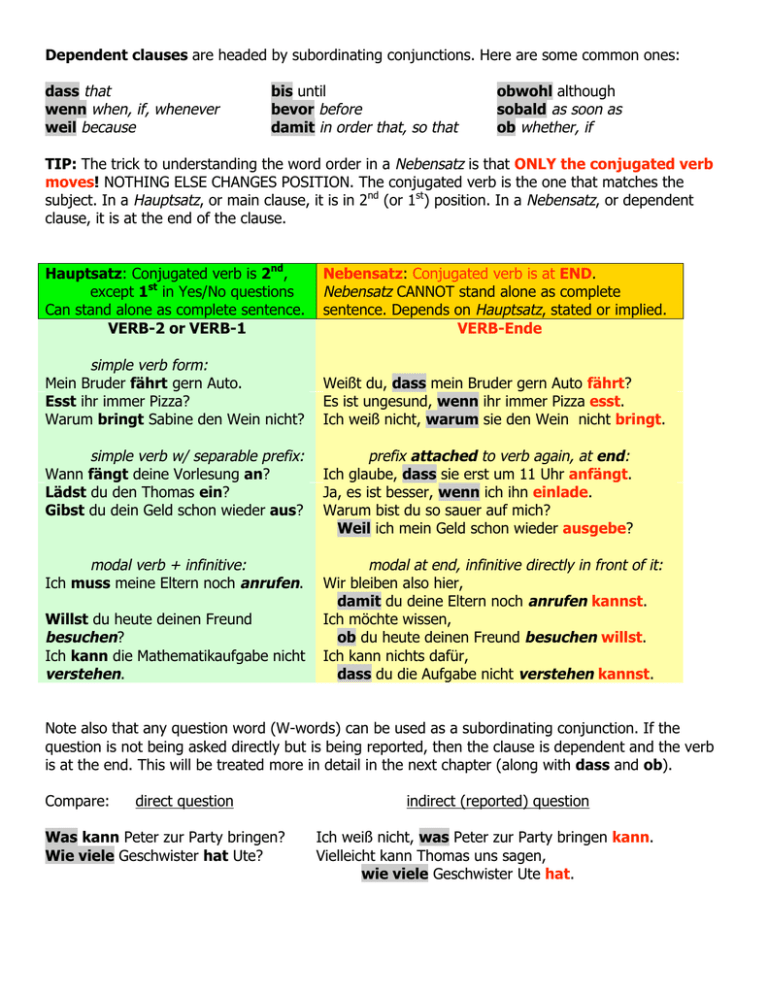
Dependent clauses are headed by subordinating conjunctions. Here are some common ones: dass that wenn when, if, whenever weil because bis until bevor before damit in order that, so that obwohl although sobald as soon as ob whether, if TIP: The trick to understanding the word order in a Nebensatz is that ONLY the conjugated verb moves! NOTHING ELSE CHANGES POSITION. The conjugated verb is the one that matches the subject. In a Hauptsatz, or main clause, it is in 2nd (or 1st) position. In a Nebensatz, or dependent clause, it is at the end of the clause. Hauptsatz: Conjugated verb is 2nd, except 1st in Yes/No questions Can stand alone as complete sentence. VERB-2 or VERB-1 Nebensatz: Conjugated verb is at END. Nebensatz CANNOT stand alone as complete sentence. Depends on Hauptsatz, stated or implied. VERB-Ende simple verb form: Mein Bruder fährt gern Auto. Esst ihr immer Pizza? Warum bringt Sabine den Wein nicht? Weißt du, dass mein Bruder gern Auto fährt? Es ist ungesund, wenn ihr immer Pizza esst. Ich weiß nicht, warum sie den Wein nicht bringt. simple verb w/ separable prefix: Wann fängt deine Vorlesung an? Lädst du den Thomas ein? Gibst du dein Geld schon wieder aus? prefix attached to verb again, at end: Ich glaube, dass sie erst um 11 Uhr anfängt. Ja, es ist besser, wenn ich ihn einlade. Warum bist du so sauer auf mich? Weil ich mein Geld schon wieder ausgebe? modal verb + infinitive: Ich muss meine Eltern noch anrufen. modal at end, infinitive directly in front of it: Wir bleiben also hier, damit du deine Eltern noch anrufen kannst. Ich möchte wissen, ob du heute deinen Freund besuchen willst. Ich kann nichts dafür, dass du die Aufgabe nicht verstehen kannst. Willst du heute deinen Freund besuchen? Ich kann die Mathematikaufgabe nicht verstehen. Note also that any question word (W-words) can be used as a subordinating conjunction. If the question is not being asked directly but is being reported, then the clause is dependent and the verb is at the end. This will be treated more in detail in the next chapter (along with dass and ob). Compare: direct question Was kann Peter zur Party bringen? Wie viele Geschwister hat Ute? indirect (reported) question Ich weiß nicht, was Peter zur Party bringen kann. Vielleicht kann Thomas uns sagen, wie viele Geschwister Ute hat.
